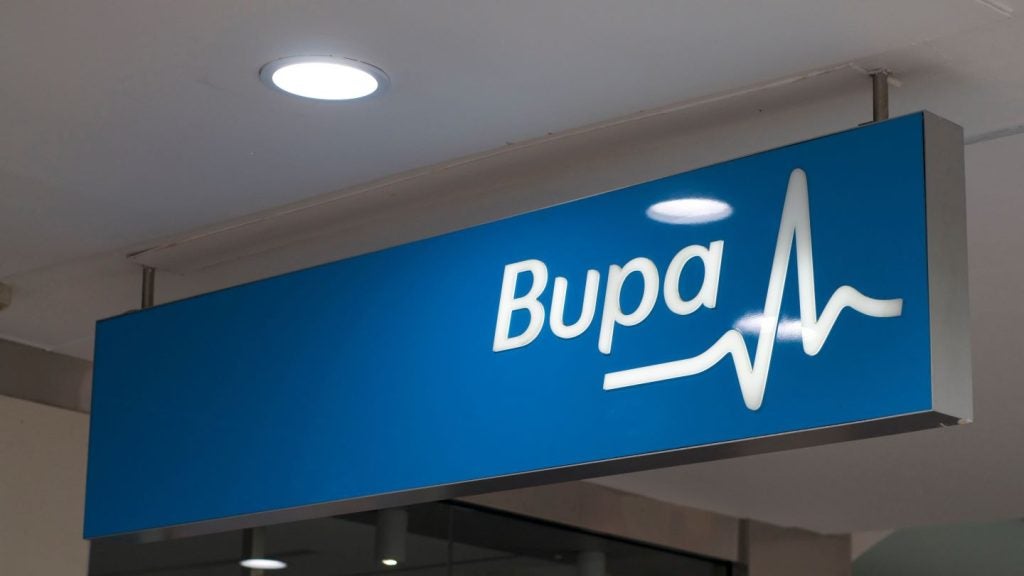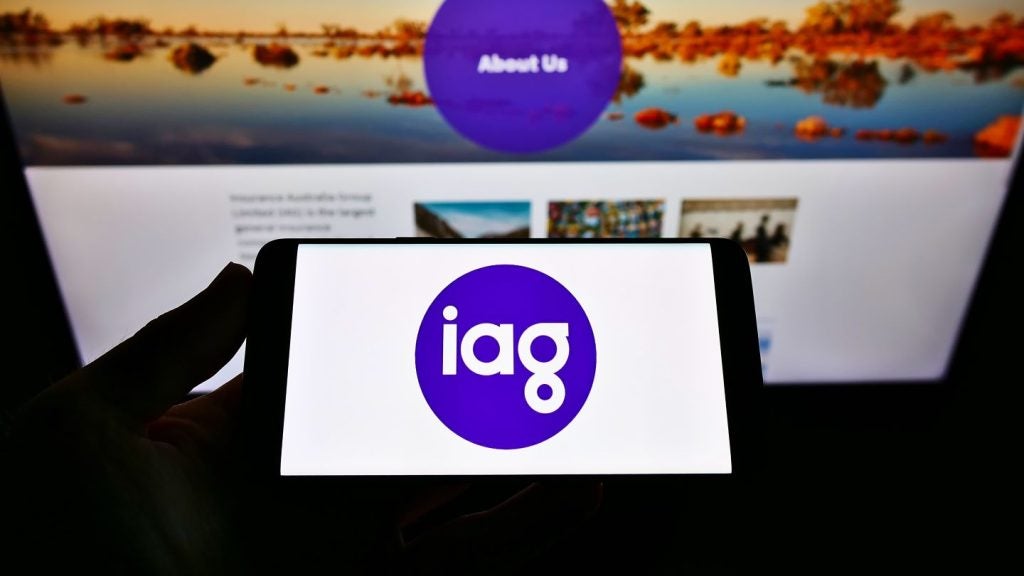
Paul Avis, marketing director at Canada Life Group Insurance, explains the lessons learnt by the provider in encouraging financial advisers to adopt the Canada Life Automated Self Service online platform (CLASS). In Avis’s view, technology is only part of the picture and having quality terms and conditions for advisers as well as maximising macro opportunities are also key to success
In confessing I am a Luddite, i.e. someone who resists technological change, I believe I’m starting from a great position to write an article on the increasing importance of technology for all insurers.

Access deeper industry intelligence
Experience unmatched clarity with a single platform that combines unique data, AI, and human expertise.
Having previously been a sceptic and a resister of change, why am I now becoming such an advocate of this brave new world? The main reason is, if I don’t I will be threatening the existence of Canada Life as the #1 group risk insurer in the UK, based on the ORC Survey results 2015.
So what is this technology thing about? To me there are two strands: simple administration, which leads to customer engagement, and good communication, which creates customer understanding.
If you can make your business easy to work with, while at the same time supporting and educating your customers on how they manage their business needs, then you will have a winning combination to future proof your organisation. This sounds like common sense, but by focusing on the benefits of simple, effective administration we can make a real difference on a practical level.
Problem

US Tariffs are shifting - will you react or anticipate?
Don’t let policy changes catch you off guard. Stay proactive with real-time data and expert analysis.
By GlobalDataWhen we launched the Canada Life Automated Self Service (CLASS) online platform, in December 2005, it enabled advisers to carry out online quotations for all of our products.
Over the next few years we added e-reporting (for all organisations, and not just the smaller companies we usually transact with on CLASS) and the ability to go on risk for new schemes and renew existing policies. By 2008, we had established a ‘cradle-to-grave’ administration system.
Bearing in mind that the traditional approach to group risk broking was to format a Word document specification and provide Excel spreadsheet data, this was quite revolutionary.
To provide smaller employers (fewer than 100 employees) with group protection, this seemed the only logical step – an operationally efficient and therefore profitable way to support this market segment. However, too few advisers shared our vision and we ended 2009 with just over 1,000 organisations on CLASS.
Having a unique administration system with so few schemes was a worry for us and Canada Life tried hard to figure out what would make advisers want to adopt our technology.
Extra functionality
To tackle this, we added a great deal of extra functionality in 2009, opening CLASS up to wider scheme design variables, but it was only in late 2010 we made a real breakthrough. Ironically, it was not through more technology.
We launched what we called a CLASS ‘Small Employer Arrangement’, a range of policy terms and conditions that transformed our offering. This included offering group schemes from 2 people, a minimum premium of just £480 per annum (per policy), unit rated (average) costing from 10 lives compared to an industry standard of 20, and, most importantly, no medical underwriting for £550,000 per employee death benefits and £65,000pa income protection benefits.
By the end of 2014, we had grown to over 5,000 schemes placed on risk and administered through CLASS, over 7% of all UK group risk market schemes. . It was not just the technology that sold it: it was technology plus more advantageous terms and conditions than the standard route, which got advisers to embrace the approach we had created.
CLASS has been a great success so far and plays an important role in helping to hold the largest market share in the existing marketplace.
But, as the market leader by premiums, employers (21,000) and employees (2.7m), we wondered whether it could also help us to grow the market. Following a wealth of research we believed that it could, but only when technology is aligned with the opportunity to talk about employee benefits to the under-penetrated, smaller employer market.
In the UK, that opportunity exists for group life when presented alongside pensions to the 1.8m employers that are due to go through pension automatic enrolment (AE) before 2018.
A total of 96% of UK organisations do not currently have group life, so it is clear the potential is there but we wondered how technology could help us?
How could we give advisers the time to carry out a quote and employers the time to consider it when their clear focus is on pension compliance? This was the challenge we needed to address.
We began to probe what was needed to encourage a Small and Medium Size Enterprise (SME) to consider anything other than pension AE compliance and we came up with four ‘critical success factors’, underpinned by our research, where we believed technology could help us to address the issues:
Cost – improved understanding was needed. Our industry research confirmed that expenses are a major challenge for employers and there were misconceptions about the cost of group life cover (expectations of 3% salary roll plus). Simple cost options, identified upfront as a % of salary roll, to align with pension discussions could open the way for meaningful discussions. Tax efficiency and premium breakdowns per capita (pre and post-tax) could show just how affordable group life can be. Quote functionality and formatting were the technological requirements needed.
Simplicity – to ensure client understanding and engagement is immediate. We wanted to demystify the trust establishment work needed to gain the best tax advantages for scheme members, so in March 2015 we launched our master trust to alleviate this issue – not a technological change in itself but CLASS needed to support different terms and conditions.
Reward – this is necessary for advisers but sometimes seen as a challenge to group life market growth (historically the 4%-10% of premium commissions received didn’t stack up against the work needed to implement and run group Life schemes). We already offered up to a 30% commission, paid every year the contract is in force, but it was unclear whether advisers were aware of this. We needed to make advisers aware that these schemes provide an ongoing income and deliver the technological requirements to ensure that quoting and administration is simple enough to make the business worthwhile.
Minimal administration – to achieve this, we challenged ourselves; could the quote and on risk process be completed in under 5 minutes? How could we make it efficient and timely for advisers and employers alike?
So, did technology support our objectives? Through the launch of Simply CLASS Group Life cover in June 2015, we believe it did. We have achieved what was needed. For example, every adviser receives four quotes, using simple AE data, in under a minute.
The complete process from quote to on risk takes under five minutes. [Whether it is online, or in print,] advisers see a benefits breakdown of costs (and tax savings) and online they are given details of the commission that would be earned over the 3 years of the rate guarantee. When they go on risk, they get all of their paperwork, pre-completed where possible, including the master trust documentation.
We are now working on a simple, not necessarily adviser-based, renewal process. We have a log of 22 items to consider, based on customer feedback, and are looking for e-linkage possibilities with organisations that hold employee data. We are also considering an ‘off the website’ product.
To conclude, our world – and my primary focus – is all about how we offer the simplest and easiest customer journey for both advisers and employers.
As part of our evolution I believe we have learned that technology is only one part of the picture. Having quality terms and conditions for advisers and maximising macro opportunities are also key to success and allow us to time technological investment correctly.
Most importantly, the launch of Simply CLASS has moved our technology from being an administration function to a true sales support function, and that indeed is a revolution in the way group risk is transacted in the UK.







